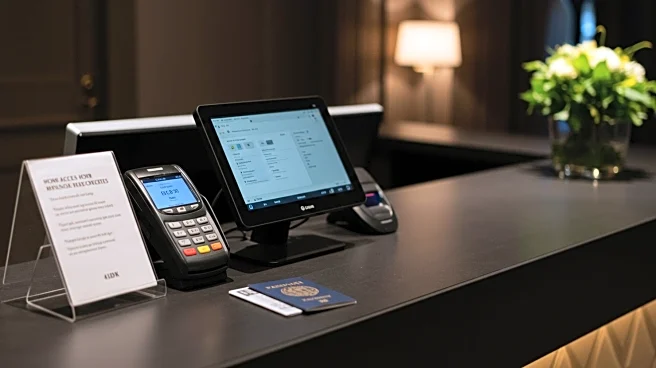What's Happening?
The Italian data protection authority, known as Garante, has issued a warning regarding breaches in hotel IT systems that have led to the theft of high-resolution scans of passports and ID cards. This incident highlights a significant vulnerability in the hospitality industry, where front desks routinely store sensitive personal identifiers. The warning emphasizes the need for hotels to adopt core privacy principles such as data minimization and lawful basis for data collection, as outlined by the GDPR. Hotels are advised to limit the collection and retention of ID images, encrypt data, and enforce multi-factor authentication to mitigate risks.
Why It's Important?
The breach of sensitive personal data in hotels poses a significant risk to individuals, potentially leading to identity theft and fraud. For the hospitality industry, this underscores the importance of robust data protection measures to safeguard guest information. Compliance with GDPR principles not only helps in reducing the risk of data breaches but also enhances trust and accountability. Hotels that fail to implement these measures may face regulatory scrutiny and damage to their reputation, affecting their business operations and customer relationships.
What's Next?
Hotels are expected to review and strengthen their data protection protocols, focusing on minimizing data collection and ensuring secure storage and access. The industry may see increased adoption of consent management platforms to centralize data subject access requests and create audit trails for investigations. Regulatory bodies may continue to monitor compliance, and hotels could face penalties for non-compliance. Guests are encouraged to inquire about data handling practices and monitor their documents for potential misuse.
Beyond the Headlines
The ethical implications of data handling in the hospitality industry are significant, as guests entrust hotels with their most sensitive information. The breach highlights the need for transparency and accountability in data practices. Long-term, this may lead to a cultural shift in how hotels approach data privacy, prioritizing guest security and trust.










